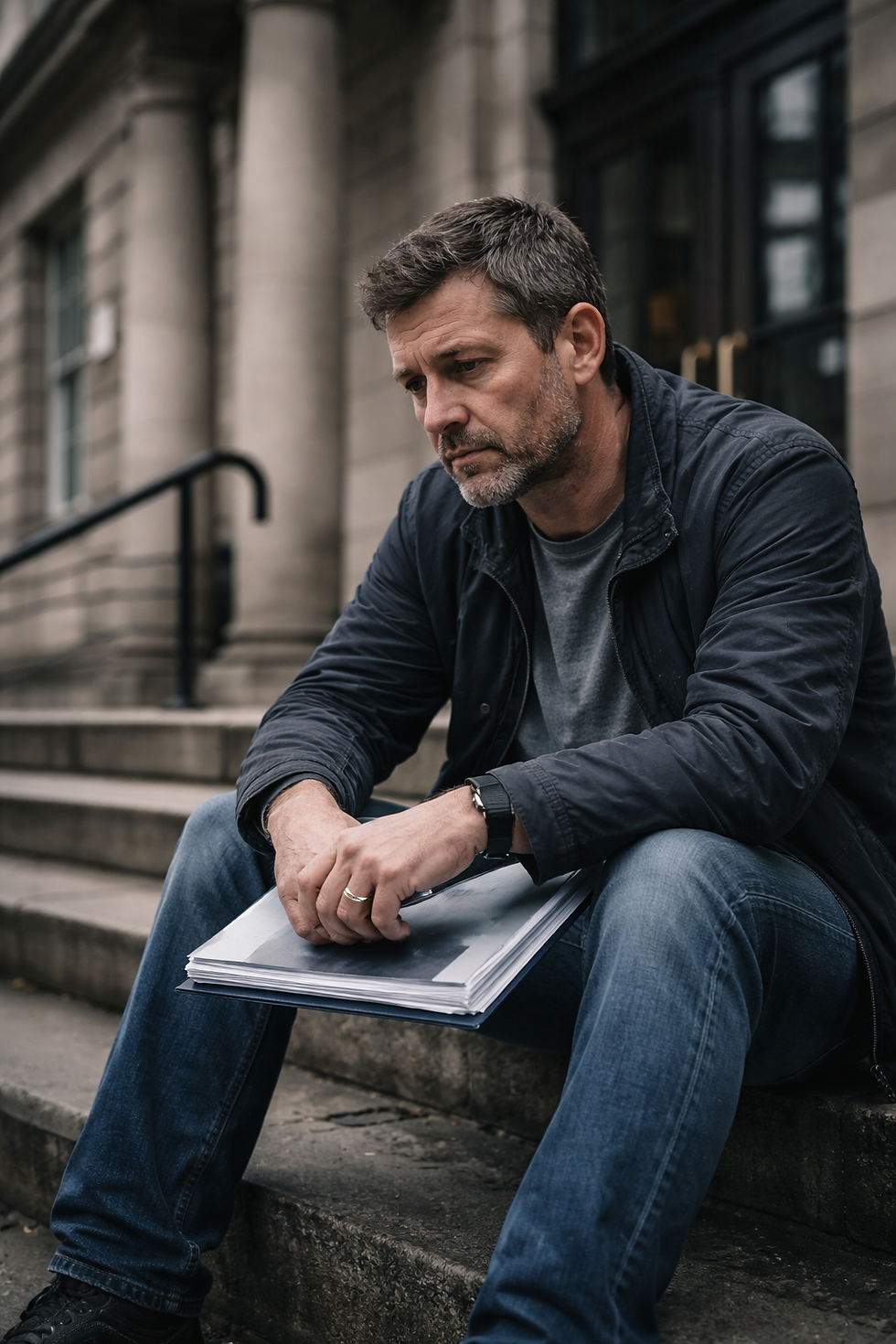Covert Recordings in Family Court: Summary and Reflections on the New Guidance
- Falsely Accused Network

- May 15, 2025
- 4 min read
By Michael Thompson, Founder of the Falsely Accused Network
The Family Justice Council has just released its long-awaited guidance on covert recordings in family proceedings concerning children (May 2025). With the increased use of smartphones and the rising mistrust some parents feel toward professionals and the family court system, the issue of secret recordings has become an increasingly thorny one. This new guidance provides clarity—but also highlights the difficult balancing act between uncovering the truth and protecting the welfare of the child.
What Are Covert Recordings?
The guidance defines covert recordings as audio or video recordings made without the knowledge or consent of those being recorded. They might involve social workers, Cafcass officers, family members—or, more worryingly, the children themselves.

Why Do Parents Record?
Parents may resort to covert recordings for several reasons:
A lack of trust in social workers or Cafcass officers.
To counter what they see as inaccurate notes or reports.
To gather evidence for court.
In some cases, to publish material online as part of a wider campaign.
While some of these motivations are understandable—especially for those who feel wrongly accused or misrepresented—there are serious risks involved.
Are These Recordings Legal?
The guidance makes clear that the legal position is complex. Covert recordings by private individuals are not automatically unlawful, but they may breach privacy rights under Article 8 of the Human Rights Act, or violate data protection laws (UK GDPR / DPA 2018) if shared or processed improperly.
Recording court hearings themselves is strictly prohibited and could result in a contempt of court charge.
Can Recordings Be Used in Court?
Yes, but with caution. The court will consider:
Relevance: Does the recording help resolve the issues in dispute?
Probative value: Is it reliable evidence, or has it been edited or manipulated?
Welfare impact: Especially where the recording involves a child.
Timing: Late disclosure of recordings can derail a case and lead to costs penalties.
It’s essential to notify the court early using the correct procedures, such as Form C2, and to avoid ambushing the other side.
Recording Children: A Red Line?
One of the strongest warnings in the guidance relates to the covert recording of children. Courts have repeatedly found that this is almost always harmful and rarely useful as evidence. In fact, the act of secretly recording a child can be used against a parent, as it may raise serious questions about their judgment and ability to protect the child’s emotional wellbeing.
As Peter Jackson J noted, the covert surveillance of children often has “no probative value” but “profound consequences”.
Some Recordings Have Changed the Course of Cases
To be fair, the guidance acknowledges that there have been cases where covert recordings exposed serious misconduct or prevented miscarriages of justice. For example:
In Medway Council v A, a parent’s secret recording of a foster carer being abusive was crucial in discrediting the local authority’s case.
In Re F (Care Proceedings), a mother’s recording contradicted an expert’s written assessment, leading the judge to criticise the professional's conduct.
These cases show that sometimes, covert recordings have been the only way to level the playing field when the system fails.
Key Concern: The Risk of Retaliation and Costs
The guidance warns that while some recordings may be admitted into evidence, they may also open the door to counterclaims, such as:
Breach of data protection law.
Civil claims for misuse of private information.
Allegations of harassment or coercive control.
The court might also order the recording party to pay costs, particularly if the recording causes delays or if it turns out to be irrelevant.
Publication Risks: Social Media and Defamation
Publishing covert recordings online or through social media is especially risky. Not only could it breach privacy laws, but it may:
Identify children and damage their welfare.
Be considered contempt of court.
Lead to defamation proceedings.
Even where a parent feels justifiably wronged, publicising covert recordings can backfire badly—and may damage the very case they are trying to build.
The Voice of Young People
The Family Justice Young People’s Board contributed to the guidance and made a powerful point: being secretly recorded feels like a violation of trust. It makes them feel used, manipulated, and unsafe. They emphasised that overt recordings with consent, handled by professionals—not parents—might sometimes be appropriate, but only with safeguards.
A Way Forward?
The guidance ends with a practical suggestion: develop policies for overt recording by agreement. If trust is lacking, and professionals fear covert recordings, maybe it’s time for agencies to allow mutual, overt recording of interviews—so everyone knows where they stand.
Final Thoughts
This is a useful and much-needed piece of guidance. It rightly emphasises the welfare of the child, but also leaves room for the fact that some recordings have been vital in exposing injustice.
From my perspective at the Falsely Accused Network, we know that some parents record out of desperation—not malice. The key is to tread very carefully: if you’re thinking of recording, speak to someone who understands the risks.
Sometimes, the recording helps you. But sometimes, it helps the other side more.
If you're facing this situation, we’re here to support you.
If you've been falsely accused of domestic abuse in England and Wales you can receive support at
Link for full guidance



Comments